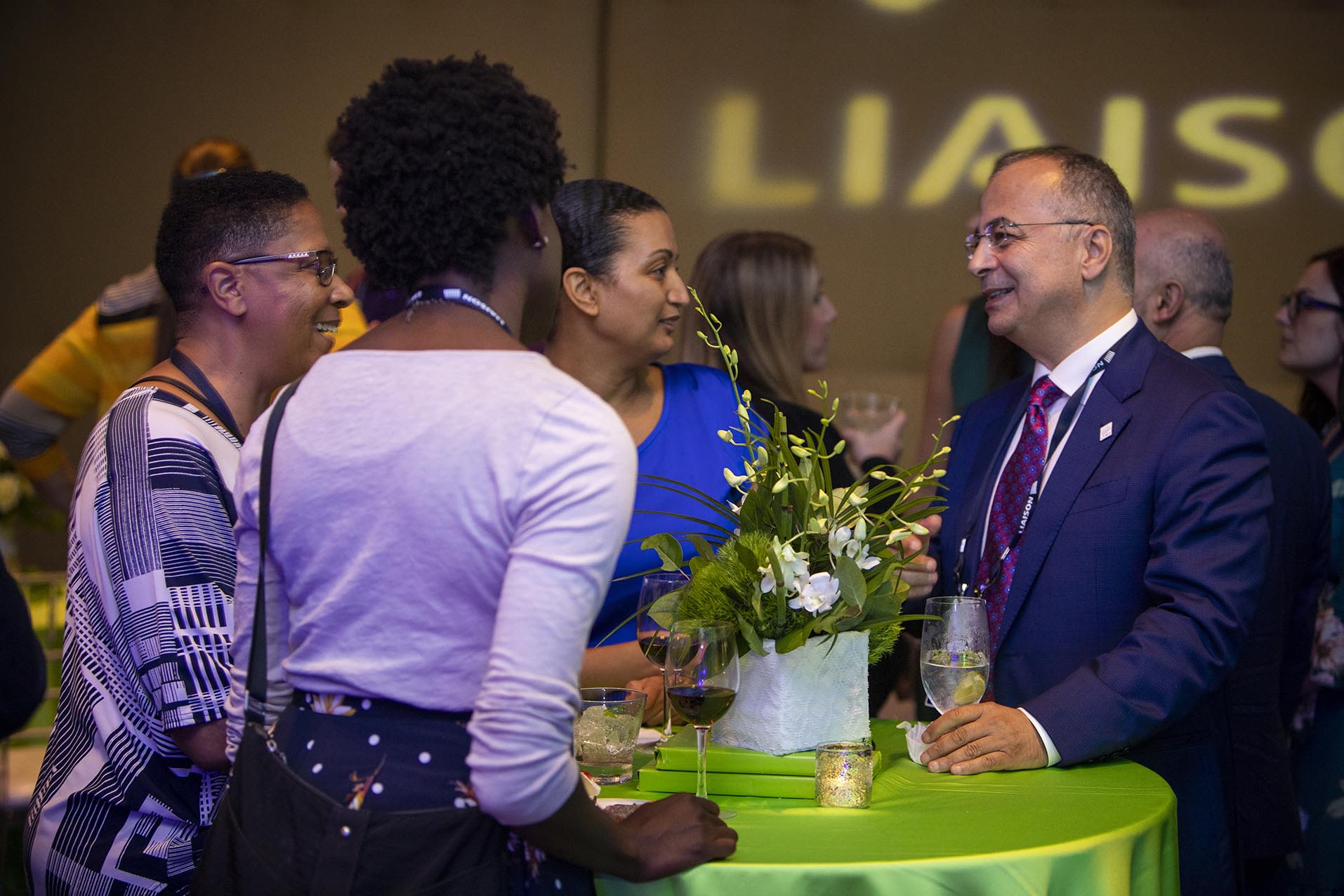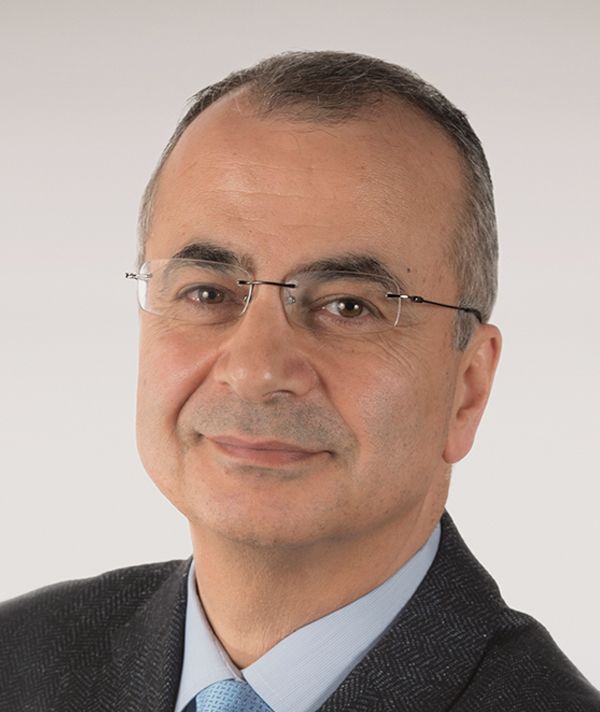Four Bright Spots in a Year That’s Irreversibly Changed Higher Ed Admissions
Liaison’s CEO, staff and partners illuminate how to grow applicant pools and boost enrollment—even during a pandemic

From staff furloughs to campus re-openings that led promptly to campus re-closings, it’s easy to see the outlook for higher education as darker than it has been in decades. Still, thanks to the outcomes we’ve seen across our Centralized Application Service (CAS™) Community, the admissions and enrollment leaders at Liaison International have found four reasons to be optimistic for the future of our industry.
1. Collaboration within a community proves there is a way forward.
“COVID-19 did not in and of itself cause change,” says George Haddad, Founder and CEO of Liaison. “Rather, it served as a catalyst for the development of long-awaited, innovative solutions for higher education. Members of Liaison’s CAS Community know this firsthand as they have long weathered uncertainty by choosing collaboration over competition.”
Continues Haddad, “For more than 25 years, Liaison has been leveraging the power of community, applying the successful, proven marketplace model to graduate admissions. We continue to scale and grow the student pipelines by investing in technology, products and services, and we continue to develop and evolve our partnerships to reach deeper and engage prospective applicants earlier."
2. Applicant pools can grow even during a pandemic.
Liaison’s health profession partners, who have partnered with the company to develop discipline-specific CASs, have seen significant increases in graduate applications this year — yes, in 2020. AACOM (American Association of Colleges of Osteopathic Medicine), one such partner, has seen a 17.7% surge as of August.
Students in the health professions are no doubt recognizing the major investment in healthcare preparedness prompted by the pandemic, and likely they are responding to a worldwide call to action to be part of the solution. But this positive application trend is not limited to health professions, leading Liaison to wonder: Is there something more behind it?
A resounding yes, says Toby McChesney, Ed.D., Senior Assistant Dean of Graduate Business Programs at Santa Clara University’s Leavey School of Business and Chair of the BusinessCAS Advisory Board. “BusinessCAS is why we were able to confidently navigate through uncertainty without losing our momentum,” says Dr. McChesney. That momentum resulted in a 50% increase in applications, a 63% increase in admits and a 51% increase in deposits for fall 2020.
“Making systems work efficiently and serving all constituents well regardless of their discipline is not just good business, it is an essential obligation we feel keenly,” adds Haddad. “Our constant need to innovate reflects this obligation, but it does not stop at the office door. We have begun, and need to continue, to advocate for social justice as a way of making that system work as it should.”

Liaison’s Founder and CEO, George Haddad. Credit: Liaison
Liaison’s Founder and CEO, George Haddad. Credit: Liaison
Further Reading from Liaison
- Magazine — The Admissionist
- Magazine — GME: Today & Tomorrow
- Magazine — Engineering: Today & Tomorrow
- Ebook — 5 Key Lessons from the 2020 Pandemic: Overcoming Future Enrollment Management Global Crises
- Blog Post — Here’s How Programs are Benefitting from a Community Approach to Graduate Admissions
- Blog Post — CAPCSD Grows a Community with CSDCAS
- Blog Post — CAS and Community Building: Engineering a Big-Picture Vision
- Case Study — Santa Clara University Leavey School of Business Increases Applications by 33% with CAS
- Case Study — Redefining Strategy: Using Partnerships to Expand Capacity at the University of Kansas School of Business
- Community Resources — Join the CAS Community
3. You can safely keep your pipeline moving.
“Liaison is uniquely positioned to crisis-proof our partners’ admissions processes,” says Karen Jacobs, Liaison’s Vice President of Account Management and a former admissions leader with over two decades of experience on campus herself. “We’ve been doing this a long time, so we know the value of being a proactive partner. We don’t wait for problems before we start offering the solutions that we know our higher ed clients need.”
For more than 31,000 programs on over 1,000 campuses, CASs have provided a way to streamline processes for years, whether in dentistry, pharmacy, veterinary medicine or in one of the over 40 other services across the health professions and beyond. Many of those CAS members are relying on Liaison's complementary applicant and support services more than ever, as they take care of the back office work of processing applications and providing real time customer service to applicants. They are finding that these outsourced services can augment their capacity to nurture applicants as well as mitigate the resource crunch of reduced staff and lost student workforce.
Whether answering phone calls or providing support through email and chat, Liaison’s operations staff have indeed proven themselves to be well-prepared, thoroughly trained and passionately geared up to respond effectively in challenging circumstances like those presented by the pandemic. The nature of higher ed admissions—with pressing deadlines that need to be met irrespective of what’s going on globally—requires true partners to support their clients securely and remotely.
“COVID-19 did not in and of itself cause change. Rather, it served as a catalyst for the development of long-awaited, innovative solutions for higher education.”
4. You can continue to build, with support from your community.
“One of the things that really attracted me to CAS was the ability to build communities within and across disciplines at the graduate level,” says David Poole, Director of Admissions at the University of Miami College of Engineering. “The more we work together, the stronger we’re going to be as a community of educators and institutions. In the long run, that will only help the students we serve.”
Liaison has always taken seriously its role as a collaborative partner for its CAS Community members, a role that has become even more important during the COVID-19 pandemic. Besides their uninterrupted business services, they have continued to produce relevant content for their members via webinars, online networking sessions and a fully virtual Liaison User Conference.
“When you are part of a community, you are part of a support network, which is particularly important in challenging times,” continues Poole. “Technology platforms like EngineeringCAS don’t appear out of thin air; there are people behind them. It’s not just words and charts and technology.”
According to Haddad, “Colleges and universities will stay afloat throughout the pandemic, but the landscape of higher education will never be the same. We must embrace the new reality to rethink the habits of doing our business, which is educating the future generations, and be innovative if we are to sustain and grow graduate education — and, as CAS Community members have proven, our future is brighter if we work together.”
Laura Nicole Miller is Editor-in-Chief of The Admissionist by Liaison.
This content was paid for and written by Liaison. The editorial staff of Inside Higher Ed had no role in its preparation.


